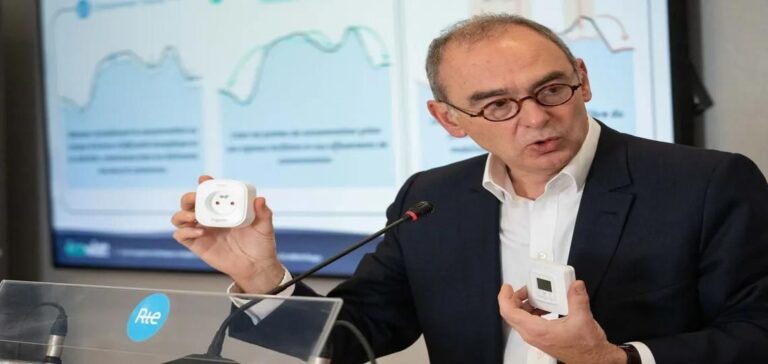To achieve carbon neutrality by 2050, “nuclear power alone won’t be enough”, said RTE CEO Xavier Piechaczyk on Saturday, calling for “renewables to be introduced as quickly as possible”.
Towards carbon neutrality in 2050: Nuclear power not enough, urgent call for renewable energies by RTE boss
“Our predecessors built the nuclear fleet, so let’s make the most of it. But just because it’s decarbonized doesn’t mean it’s the only answer to getting rid of fossil fuels,” said Mr. Piechaczyk on France Inter. “We’ve shown that we have to use renewable energies anyway (…), because nuclear power alone won’t be enough,” he added.
In 2021, RTE produced a report on France’s energy future based on 6 production mix scenarios to achieve carbon neutrality by 2050, in which it called for a combination of nuclear and renewable energies.
“France is afflicted by a pathology, which is to spend its time arguing between nuclear power and renewables: it’s not the first question to be asked”, said the Chairman of the French power grid operator. “France consumes 63% of fossil fuels, so we have to ask ourselves how we can stop these 63% of fossil fuels, which are all imported, which are produced in countries that are not our allies, and which cost France between 50 and 100 billion euros every year,” insisted Mr. Piechaczyk. “That’s the first issue. And that’s good for the climate, for the balance of trade, it’s good for our sovereignty, it’s good for everyone,” he added. “To do that, we need to electrify progressively, and for that there are paths and deadlines. And between now and 2035, there’s no other solution than to use renewable energies as quickly as possible, because by then there won’t be any new reactors,” reiterated the Chairman of RTE.
The French government plans to build six new EPRs in France, but they won’t be commissioned until 2035 at the earliest.
“In the meantime, we need to maintain the existing nuclear fleet and ensure that it produces as much as possible, and introduce renewables as quickly as possible (…) After that, it will be a different story,” concluded Mr. Piechaczyk.






















